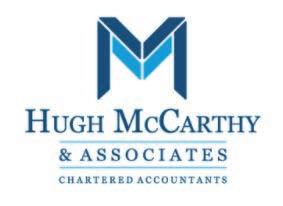SETTING UP BUSINESS IN THE REPUBLIC OF IRELAND



The Republic of Ireland is an island in North Western Europe with close proximity to the United Kingdom and the Western European mainland. It is approximately 70,200
Branch Office
Sole Proprietorship
Partnerships
Establishment or place of business
square kilometres in size with a population of 5.08 million people. English is the main language spoken. As it is part of the euro zone, its monetary unit is the Euro.
An extension of a non-Irish company. Has no legal personality, but is part of the legal entity of the foreign company. All responsibilities for any liabilities in Ireland lie with the foreign company. There is no (minimum) capital required but the foreign company has to invest the necessary amount of money to carry out the business in the UK.
Set up by a single natural person, who is fully liable for the debts contracted by the business with his or her own present and future wealth. There are no Irish nationality or residence requirements.
Any partnership requires at least two partners with a personal commitment. Their liability for the partnership’s debts and liabilities is generally unlimited and personal, including all private assets.
An establishment is a physical or visible indication that a business may be operated there.
There are the following partnerships in Irish law:
General Commercial Partnership
Partnership limited by guarantee
Has no corporate personality. All partners have unlimited joint and several liability.
A legal form related to the General Commercial Partnership, but with the option of limiting the liability of some partners.
The general partners are personally and jointly liable without limitation, as well as with their private assets. The liability of the limited partners is limited to their respective share of the partnership capital.
Suitable for foreign companies looking for a presence in Ireland to initiate business. A branch can be opened quite simply, but may need to be registered with the Companies Registration Office if the branch has a physical presence in Ireland. The costs of registering and translating all the documents should not be underestimated.
Suitable for small businesses and start-ups. Trade will need to be registered with Revenue Commissioners for tax and pay related social insurance.
No minimum share capital is required and the accounting and publication obligations are less extensive than those for corporations.
An overseas company also has to register with the Companies Registration Office if it regularly conducts business from a particular location in Ireland, even if there is no physical sign of the company’s connection with it.
The classic business form for the freelance professions. No formal registration required.
Suitable for medium-sized companies seeking additional start-up capital from persons who prefer a limitation of liability. The main place of business has to be in Ireland.
Partnerships must be registered under the Limited Partnerships Act 1907.
Unlimited Company An unlimited company may or may not have share capital. The company must be entered in the commercial register. Its one major advantage is that it is not required to register annual accounts at Companies Registration Office.
Body Corporate A legal entity (such as an association, company, person, government, government agency or institution) identified by a particular name. Also called corporation, corporate body or corporate entity.
There are the following corporations in Irish law:
The nominal value of the company’s allotted share capital must not be less than €25,000, at least 25% of which must be fully paid up before the company commences business or exercises any borrowing powers.
There is no minimum share capital for Ltd but it must have at least one share. The maximum number of members is 149. It may only have one director.
Limited Partnership A limited partnership must consist of at least one general partner and one limited partner. The partnership should not consist of more than 20 persons or, if carrying on the business of banking, of more than 10 persons. The general partner(s) is/are liable for all the debts and obligations of the firm. The limited partners contribute a stated amount of capital and are not liable for the debts of the partnership beyond the amount contributed.
Suitable, where individuals essentially require a partnership business but want to avoid the expenses involved in drafting a detailed agreement.
For information concerning the incorporation formalities of a company see https://www.cro.ie/Registration/Company
Shares can be transferred easily; the PLC can be listed publicly on the stock exchange and enjoys a high market reputation. The costs of the founding process are relatively high. The organisational and accounting obligation and the publication requirements are very extensive.
This form suits small and medium-sized enterprises and family businesses. The operating rules are relatively simple and flexible.
The limited partnership is the conventional structure used in the EU and around the world for venture capital, private equity and all kinds of “real economy” investing by investment funds, in SME and mid-cap companies and in sectors such as infrastructure, technology and sustainable energy.
Commercial Register Companies Registration Office is the central commercial register for the Republic of Ireland.
The main functions of Companies Registration Office are to:
• Incorporate and dissolve companies and limited liability partnerships;
• Examine and store company legislation delivered under the Companies Act and related legislation; and
• Make this information available to the public.
Bank Account To open a bank account individuals will need to provide proof of identity and evidence of their residential address. Banks may require these documents to be certified by a lawyer, accountant, banker or other regulated professional person. Companies need to provide their registered name and number as evidence of their incorporation. They may also request the companies Corporation Tax number. Banks will also request personal details of the partners/directors and other business contact details.
Transfer of Goods and Machinery
Within the EU goods and machinery can circulate freely. Imorts from nonEU states to Ireland are subject to the “European Community Common Customs Tariff.
Different Irish banks will have their own criteria for providing banking facilities to overseas business.
There are several customs exemptions to be considered.
Transfer of Capital Capital can be moved in and out of Ireland without any restrictions. However, large amounts of capital must be reported.
Visa and Residence permit In general, nationals of European Economic Area (EEA) countries are permitted to live and work freely in Ireland. Non EEA nationals. Non EEA nationals must have an employment permit to work in Ireland.
Ireland is not part of the Schengen agreement. Further information about visa entry clearances and processes can be found here: http://www.inis.gov.ie/
Ireland has one of the most attractive, transparent tax regimes in Europe. The low Corporation tax applies to all Irish corporate trading profit. Ireland also has a continuously growing network of international tax treaties with full exchange of tax information.
Income Tax Rates of Income tax: Rate Taxable Earned Income (€) Category
20% 0- 44,000
20% 0-48,000
20% 0-53,000
20% 0-53,000 (with an increase of 35,000 max)
Value Added Tax (VAT)
Capital Gains Tax (CGT)
Single, widowed or surviving civil partner without dependent children
Single, widowed or surviving civil partner qualifying for the single person child carer credit
Married or in a civil partnership (one spouse or civil partner with income)
Married or in a civil partnership (both spouses or civil partners with income)
40% Earned income remainder All categories
You are required to register for VAT if you provide, or believe you will generate turnover from the provision of services to the value of €42,500 in any continuous period of twelve months. This increases to €85,000 for the sale of products.
Registration is compulsory in the following cases:
• Distance sales from outside Ireland into Ireland to the value of €10,000
• Acquisitions from other EU countries to the value of €41,000
• Foreign trader even when turnover is nil.
You do not pay CGT on the first €1,350 of your gain. CGT is paid at 33% on capital gains above exempt amount. There are other rates for specific types of gains:
• Gains from foreign life policies and foreign investment are charged at 40%
• Gains from venture capital funds are charged at 12.5% (individuals and partnerships) and 15% (companies)
• Windfall gains are charged at 80%
Exempt persons non-taxable entities that acquire, or are likely to acquire, more than €41,000 worth of goods from other Member States in any 12 month period are obliged to register and account for Value-Added Tax (VAT) in respect of the acquisitions from other European Union Member States.
Summary of the charge to Irish CGT
and remittances Corporation Tax The standard rate of corporation tax is 12.5% on trading income, 25% on non-trading income and 25% for income from an excepted trade. This applies to both resident and non-resident companies.
VAT (cont.) There are the tax rates in Ireland:
Exempt Includes certain financial, medical and educational providers. Don’t charge VAT on their sales and are not entitled to claim VAT on their purchases.
Zero includes all exports, tea, coffee, milk, bread, books, children’s clothes and shoes, oral medicine for humans and animals, vegetable seeds and fruit trees, fertilisers, large animal feed, disability aids
4.8% reduced rate of VAT specifically for agriculture
9% reduced rate for newspapers and sporting facilities, e-books, electronically supplied newspapers. Hot takeaway food, hotel lettings, admission to entertainment venues, hairdressing & certain printed materials is also 9%
13.5% is a reduced rate for newspapers and sporting facilities, e-books, electronically supplied newspapers. Hot takeaway food, hotel lettings, admission to entertainment venues, hairdressing & certain printed materials is also 9%
23% Standard rate. Applicable for all goods and services not categorised above.
Stamp Duty In Ireland, stamp duty is paid on certain written documents that transfer ownership of property or are agreements to transfer ownership of property. Property includes land, buildings, business assets (like goodwill) and shares, stocks and marketable securities (both quoted and unquoted). You also pay Stamp Duty on certain leases and agreements to lease. The current rates on land and buildings are:
Non-resident Taxation
If you are non-resident in Ireland for tax purposes, you are chargeable to tax in Ireland on:
• Irish-source income, including income from an Irish public office
• Foreign employment income where the duties of the employment are carried out in Ireland
You many be non-resident in Ireland or tax purposes but be ordinarily resident. If so, you are chargeable to tax in Ireland on your worldwide income except:
• Income from a trade or profession, whereby no part is carried out in Ireland
• Income from an office or employment where all duties are carried out outside Ireland
• Other foreign income if it is €3,810 or less (if it is more than €3,810, the full amount is taxable).
Irelands research & development scheme Ireland allows a tax credit of 25% on qualifying R&D expenditure. The expenditure that is eligible for tax credit is €200,000. Relief is available on an incremental basis for amounts in excess of €200,000. The R&D tax credit is available in addition to the normal trading deduction for R&D expenditure incurred.
Withholding tax Irish tax legislation allows for a 25% rate of withholding tax in respect of dividends, interest and patent royalties. Moreover, a broad range of exemptions are available allowing Irish resident companies to normally pay dividends, interest and patent royalties to non-residents free of any Irish withholding tax.
Double taxation – treaties and agreements Ireland is continually expanding its tax treaty and agreement network to reduce barriers to cross-border trade and investment. Ireland has currently entered into double tax treaties with 73 countries.
Controlled foreign company rules CFC rules prevent the artificial diversion of profits from controlling companies to CFCs (offshore entities in low-tax or no-tax jurisdictions).
Key employee incentives Ireland has a Special Relief Programme which applied to employees assigned to work in Ireland. Subject to certain conditions, 30% of an employee’s income in excess of €100,000 is exempt from Irish income tax and an employer can cover the cost of flights home and school fees on a tax free basis. Grants and incentives available for overseas investors The Irish Government is dedicated to creating long-term relationships with foreign direct investors. There are many grants available to companies incorporating in Ireland including Capital Grants; Employment Grants; Training Grants and Research and Development Capability Grants.. The Irish Development Agency also provide support to both new and existing companies, including facilitating set up location and guiding new companies through the process.


This guide has been prepared by Hugh MCCARTHY & ASSOCIATES, an independent member of Antea
HUGH MCCARTHY & ASSOCIATES
Business Centre, 161-163 Lower Kimmage Road, Kimmage, Dublin 6W, Ireland Tel: +353 492 4367 garrett@hmca.ie www.hmca.ie
Mallorca, 260 àtic
08008 – Barcelona
Tel.: + 34 93 215 59 89
Fax: + 34 93 487 28 76
Email: info@antea-int.com www.antea-int.com
This publication is intended as general guide only. Accordingly, we recommend that readers seek appropriate professional advice regarding any particular problems that they encounter. This information should not be relied on as a substitute for such an advice. While all reasonable attempts have been made to ensure that the information contained herein is accurate, not Antea Alliance of Independent Firms neither its members accepts no responsibility for any errors or omission it may contain whether caused by negligence or otherwise, or forany losses, however caused, sustained by any person that relies upon it.
© 2025 ANTEA